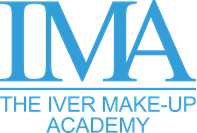5 MINUTES WITH TAMSIN BARBOSA
Thursday, October 12, 2017

With over 26-years’ experience working in the film industry, make-up and hair artist, and Iver Academy Vice-Principal Tamsin Barbosa, knows a thing or two about what it takes to become a professional make-up artist. We caught up with her to discuss her favourite career moments and get some advice for studying hair and make-up.
When did you know you wanted to become a make-up artist?
Tamsin: I wanted to become a make-up artist when I was probably about 10 years old. My dad used to work for the BBC and when I was young he used to take me up to Television Centre to watch programmes like Top of the Pops and Blue Peter being recorded. I used to see make-up artists going in with their make-up bags doing checks on bands like Duran Duran and Wham! and thought ‘I’d quite like to do that!” The idea of working in TV, on the creative side yet being behind the camera (rather than in front!) really appealed.
I stayed at school to do my A-levels then did a make-up course at Greasepaint which became The Iver Make-up Academy. I did that when I was 19 and have worked as a make-up artist ever since.
You’ve worked on plenty of British and Hollywood film releases, but what was your first big break?
My first big break was working as a daily make-up artist on a film called Oscar and Lucinda(1997). Peter Owen was the hair and makeup designer and through him I met his colleague Peter Swords King. I’ve since worked with Peter [Swords King] on many films over the last 20 years. Peter has been a huge influence on my career and I am very grateful to him, for giving me a chance initially.
Working in the film industry, what kind of technical and personal skills are required?
In terms of make-up skills, attention to detail is crucial because of the size of the screen your work is going to be on, you can’t leave anything to chance. I always imagine what it will look like on a cinema screen in Leicester Square! You also have to understand the technical aspects of lighting and cameras as these will have a huge effect on what your work looks like on film.
Being very good at both hair and make-up will make you much more successful - and employable.
In terms of personal skills, you will need stamina, patience and good people skills. Filming days can be very long- often 14-16 hours, so you need to be able to cope with that. You could be filming outside in all the elements - rain, snow, scorching heat, on land, sea or sky! You also have to be able to get on with everybody- there are lots of different types of people on a film set.
What is the typical day on set like?
A makeup artist’s day can often start very early. Arriving at work at 5/5.30am is not unusual at all. You would then set up your place, sorting out the make up you need for that morning’s looks. That may involve prosthetic pieces, wigs, facial hair. Your actor arrives and for the next hour or two you apply everything needed for the character. Then you will go to the set, which may be in a studio or sometimes a field!
A filming day is often either 10 or 12 hours on camera and you might not wrap until 8 o’clock that night. By the time you’ve taken the make-up off your actor, cleaned, set and dressed your wigs and prepared everything for the next day it could easily be 9pm before you leave work and 10pm before you’re home!
My longest day on set was filming a music video and it was over 24 hours... Often hair and make-up artists are the first and last people at work, along with costume and the Assistant Directors.
Do you have a most memorable moment and highlight in your career as a make-up artist?
First seeing my name on a big screen in the credits of a feature film, Little Voice(1998) was definitely a memorable moment. And a highlight would be being asked to do Emily Blunt’s make-up and hair on Mary Poppins Returns.

What advice would you give to someone looking to get into make-up for film?
If you want to get into film make-up I would say go to an academy that does vocational training, and obviously I would say The Iver Make up Academy!
This is partly because of the calibre of the tutors there and because the small class sizes are deliberate. I think it’s important for your tutors to get to know you because at the end of the day, your tutors may end up being your employers. Having small classes means that the teachers will be able to spend more time with each individual.
You can’t start at a specialist vocational training academy until you are 18, and so if you need to go somewhere after GCSEs then I would suggest doing a 2-year hairdressing course. A background in hair will always help when you start your training and will never be a waste of time.
Alternatively, A-levels in any form of Art, then history, and even biology are often useful.
It is essential to get some vocational training from a hair and make-up course that is recognised within the industry, where you’re taught hands-on from day one, with no essay writing!
Being taught by professionals who are working in the industry will help build your contacts that can help further your career.
It is a fantastic job so don’t let anyone put you off doing it!















